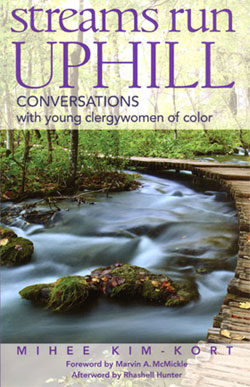
Several years ago, I attended a church discussion group on the topic of women in ministry. The pastor leading the group spent the first forty-five minutes forcefully laying out the “biblical” case for why women aren’t allowed to be pastors.
After his diatribe, I asked him, “if women can’t be pastors, does that mean God withholds gifts of preaching and teaching from them? Or does he bless them with such gifts and then denies them their full use?” He equivocated and rehashed his talking points.
To me, the answers are clear: God doesn’t withhold these gifts from women. There are many women who have been blessed with gifts of preaching and teaching and leadership and who have been called by God to use these gifts to their fullest potential serving the Church. Any church that refuses to acknowledge, accept and celebrate the blessings that God is offering through these women is refusing God himself. Sadly, this rejection and exclusion continues to stymie the Kingdom of God in many churches.
But even within churches and denominations that accept women in leadership roles, challenges of gender, race and age don’t magically fade into irrelevancy. It’s challenging to be a pastor. It’s even more challenging to be a female pastor. The challenges faced by young, non-white, female pastors are Sisyphean. It’s easy to say we fully accept women in church leadership roles, but the realities of explicit and implicit biases are still all too pervasive within modern Christianity.
 “Streams Run Uphill: Conversations With Young Clergywomen of Color” (Judson Press) takes these challenges head-on, presenting a “collection of reflections from young clergywomen of color, whose resistance to their call to ministry comes not from the Bible but from their own churches, not from God but from persons within their own community.”
“Streams Run Uphill: Conversations With Young Clergywomen of Color” (Judson Press) takes these challenges head-on, presenting a “collection of reflections from young clergywomen of color, whose resistance to their call to ministry comes not from the Bible but from their own churches, not from God but from persons within their own community.”
Skillfully and thoughtfully edited by Mihee Kim-Kort, “Stream Run Uphill” relates deeply personal stories dealing with sexism, racism, ageism, community, ministry, vocation, family, marriage, children, legitimacy, authority and myriad other issues facing women of color who have heeded the call of God.
By all accounts I shouldn’t have read this book — it was never intended for me. Marvin McMickle, in the Forward, commends the book to clergywomen of color, to male clergy and to lay women. Bridget Green, in the Introduction, says this book is “a resource for young women of color who are discerning ministry as their vocation” and that the “aim of this project is to encourage, support and advocate” young clergywomen of color.
I have no doubt that this book will offer enormous encouragement and support to clergywomen of color. But as a nearly-middle-age, white, middle-class, male layperson, I found these stories of struggles and triumphs to be profoundly moving and exceedingly important. These are stories that every Christian needs to hear. To read the words of these women who are living out their calling in the face of enormous challenges is simultaneously heart-wrenching and exhilarating. Here is the very Spirit of God moving in the Church, seemingly against all odds. Here are streams running uphill that we simply can’t ignore.
Perhaps the only shortcoming of the book was that eight of the ten contributors were ordained in the Presbyterian Church (USA). For a book dealing with issues of diversity, it would have been nice to hear more perspectives from women ministering in other denominations. Surely there are clergywomen of color in the ELCA, UCC, UMC and the Episcopal Church who could have contributed to the conversation. This is a minor complaint, however, because each story contained in “Streams Run Uphill” is important in its own right — I wouldn’t want to omit any of them. I simply would have appreciated even more perspectives and more voices.
It’s only March, but I find it difficult to imagine a more important, more powerful or more essential Christian book coming out this year. I have no hesitation in calling this the best Christian book of 2014. We ignore the stories of these brave, humble and Spirit-filled women at our own expense. I share the sentiments of Mihee Kim-Kort: we should “savor the stories in these pages like a glass of fine water turned into wine from that wedding at Cana.”
I also wholeheartedly agree with her assessment of the contributors to this book:
I celebrate, I give thanks, and I am deeply humbled by all the sacrifices and risks made by these writers. These clergywomen were vulnerable. They were transparent. They were genuine. And they were and are trustworthy.
It’s easy for some Christians to dismiss women’s roles in ministry on the basis of a few poorly exegeted bible verses.
It’s easy for others to offer tacit acceptance of females in the pastorate, but never truly embrace the ministry of those of different genders, races or ages.
Reading the words of these clergywomen poses a decisive challenge to both those positions, but more importantly, these stories offer hope:
these small windows allow us to see the possibilities for real connection and community, a little taste of the kingdom of God and how we experience that in the midst of struggle and surrender, in those places where reconciliation with God, neighbor, and self is rooted in embracing the other.
 Dan Wilkinson
Dan Wilkinson
Dan is the Executive Editor of the Unfundamentalist blog. He is a writer, graphic designer and IT specialist. He lives in Montana, is married and lives with two cats.
Leave a Reply